Bookkeeping and accounting for rental properties is one of the most tedious, confusing, and time-consuming aspects of property management. It's also among the most consequential, as it influences your cash management, tax reporting, and business decision-making.
For this reason, having a system that keeps you organized and on top of your accounts receivable, accounts payable, rent collection, operating expenses, and more is essential.
In our increasingly digital era, gone are the days of doing this all manually and on paper. You can now achieve hands-off basic bookkeeping, rest easy with automatic expense allocation, and keep it all organized digitally through real estate bookkeeping software.
Real estate bookkeeping software is an excellent accounting solution for any landlord, property manager, or other real estate investor.
However, numerous programs exist, so it can be difficult to determine which software is best for you and your business. To help you navigate the options available to you, we've created this guide on bookkeeping and accounting software so you can confidently take your business accounting to the next level and stand out in the competitive real estate industry.
What Are the Benefits and Features of Real Estate Bookkeeping Software?
Rental property bookkeeping is the foundation of real estate accounting and involves tracking all income and expenses connected to the property. This can include the following:
- Rent payments
- Maintenance costs
- Utility bills
- Homeowners' association fees
- Property taxes
- Insurance
While general accounting tools like QuickBooks Online can be used for basic accounting tasks, real estate-specific features in bookkeeping software make it easier to manage rental properties efficiently. They usually include numerous other key features that help automate the usual day-to-day tasks of property managers and landlords as well. For example:
- Accurate financial tracking
- Integration with other property management tools
- Rent collection
- Lease management
- Document storage
- Tenant screening
- Tenant communication
- Reminders
- Maintenance requests
Accounting software either fully or semi-automates these features and more, which altogether save property managers a significant amount of time, resources, and money.
Is QuickBooks Good for Real Estate Property Bookkeeping?
QuickBooks Online is a popular choice for real estate bookkeeping due to its comprehensive general accounting features, automation tools, and the ability to track activity based on class and location. It also integrates with dedicated property accounting software, making it a versatile option for those who need a more comprehensive accounting solution, including inventory management.
However, QuickBooks Online lacks some specialized features specific to rental property management. It's a good option if you're just starting out or only manage a couple properties, but for larger or growing portfolios, it can become complicated to use.
Instead of finding inconvenient and time-consuming workarounds to make QuickBooks Online work, in today's real estate industry, it's generally recommended to adopt an all-in-one solution that has accounting features and lease, tenant, and cash flow management tools.
This all-in-one solution is property management software.
With property management software, you get not only robust property accounting tools but also a comprehensive suite of features that help you manage all aspects of your rental business, such as a tenant portal and the ability to handle tenant maintenance requests.
Essential Features for Real Estate Bookkeeping Software
To act as an effective accounting software, your property management software should include features that enable you to manage income and expenses, monitor the financial health of your rental properties, and streamline your workflows.
Expense Tracking
Expense tracking is crucial for managing property-related costs and monitoring cash flow.
Real estate accounting software allows property managers to record and categorize expenses, such as maintenance costs and utility bills, ensuring that they can keep track of their expenses and make informed financial decisions.
Financial Reporting
Financial reporting provides insights into the financial health of rental properties by summarizing a property’s income and expenses.
Real estate accounting software designed for property management can create reports and generate other types of documents to help real estate businesses navigate their financial reporting and real estate transactions. Among the many reports software can generate are the following:
- Income statements
- Balance sheets
- Cash flow statements
With an accounting solution like property management software, you can also keep track of your bank accounts directly and perform bank reconciliation. Altogether, these features help real estate professionals stay on top of their financials and track expenses so they can pay bills properly, make smart business decisions, and be prepared for tax time.
Integration Capabilities
Integration capabilities in real estate accounting software allow seamless data sharing between the software and other property management tools, making it easy to manage rental properties.
Some popular integrations for real estate professionals that augment property management features and facilitate project management are listed below:
- QuickBooks Online
- Calendy
- Zoom
- Salesforce
- DocuSign
- Dropbox
- Google Forms
- Trello
- TransUnion
- Zillow
- TaskEasy
From accounting software to customer relationship management (CRM) tools, these integrations can greatly enhance the efficiency of landlords and property management companies and help them stay organized.

Choosing the Right Bookkeeping Software for Your Real Estate Business
To choose the right bookkeeping software for your real estate business, you want to thoroughly evaluate your needs and budget as well as what each software option has to offer.
Assessing Your Needs
Determining the specific needs of your rental business is the first step to selecting the best accounting and bookkeeping software for you. Consider features that can streamline property management tasks, such as automated rent collection, expense tracking, and financial reporting.
Also think about any additional features that may be relevant to your specific business. Ask yourself these questions:
- How much can I spend on real estate bookkeeping software?
- How do I plan to scale my business and grow my portfolio?
- What other tools and software do I usually use and need my accounting software to integrate with?
- What types of properties are in my portfolio, and which accounting software is made for them?
By assessing your needs, you can ensure that the chosen software meets your requirements and contributes to the success of your rental business in particular.
Comparing Pricing Plans
When choosing bookkeeping software for your real estate business, compare different pricing plans to find a solution that fits your budget and offers the necessary features.
Costs can vary depending on the accounting software. Keep an eye out for these aspects of companies' pricing plans for their property management software:
- Free software with limited features
- Monthly fees
- Per-unit-per-month payments
- Minimum monthly fees
- Different features for different plans
- Scalability for your portfolio's growth
Take into account any limitations on transactions, vendors, or customers, as well as the availability of month-to-month options instead of annual ones. Depending on the needs of your business, you should also take note of which companies require you to sign a contract to use their accounting software and which ones don't.
Which real estate accounting software is suitable for your budget and will provide you with the features and flexibility your business needs? That's what you want to look for.
Evaluating Customer Support and User Reviews
Like with other products, you should always evaluate the customer support options and user reviews of real estate accounting software.
These insights shed light on the software's reliability and user-friendliness as well as the support you'll receive from its respective company. Look for responsiveness, helpfulness, and accuracy in customer support, as well as overall user satisfaction in reviews.
This will help you determine whether the software is a good fit for your real estate business and can provide the necessary support when needed, especially for landlords, property management companies, and other real estate professionals.
Security Measures in Real Estate Bookkeeping Software
Security measures in accounting software are paramount. The software deals with highly sensitive financial information pertaining to your bank account, rental business, tenants, and more.
We'll go over some security features that the best accounting software for real estate professionals should have below.
Data Encryption
Data encryption in accounting software encodes data so that only authorized parties can access it, ensuring the security of sensitive financial information. This is particularly important for protecting data during transmission and storage.
By using data encryption, you can increase the security, privacy, and integrity of your financial data.
Secure Credential Tokenization
Secure credential tokenization is a process that replaces sensitive data with a token that has no intrinsic or exploitable meaning or value. This adds an extra layer of security, protecting login credentials and preventing unauthorized access to sensitive data.
By incorporating secure credential tokenization, your bookkeeping software can provide a more secure environment for your financial information.
User Access Customization
Some real estate accounting software offers access to multiple parties, such as property owners, property management companies, accountants, vendors, and more. This is an excellent feature for communication, but it should not be taken lightly.
Make sure your program allows you to customize access so that you have full control over which information user roles see.
Two-Step Verification
Two-step verification has become a vital component of online security today. The best real estate accounting software should include this process. For example, the software might send you an email or text with a one-time code so that your account is protected by two shields instead of only your password.

Maximizing Efficiency with Real Estate Bookkeeping Software
To maximize efficiency with real estate bookkeeping software, you should regularly update financial records, utilize automation features, and monitor key performance indicators. Your accounting software should provide you with the tools necessary to stay on top of this bookkeeping and even automate it.
Regularly Update Financial Records
Keeping financial records up-to-date is essential for accurate reporting and decision-making. Regularly updating your financial records and performing essential accounting functions can help you identify potential tax deductions, plan for future expenses, discover growth opportunities, and detect any issues that may drain resources.
Make sure your software includes accounting features that facilitate record-keeping.
Utilize Automation Features
Automation features in accounting software can save you time and minimize manual data entry errors. Utilizing automation features, such as automated rent collection, expense tracking, and financial reporting, can streamline your property management tasks and help you focus on other aspects of your rental business.
By taking advantage of automation, you can increase the efficiency and accuracy of your bookkeeping processes. Thoroughly evaluate these automation features based on the needs of your business when selecting the best real estate accounting software for you.
Monitor Key Performance Indicators
Monitoring key performance indicators (KPIs) is crucial for tracking the financial health of your rental properties. KPIs like occupancy rates, rental income, expenses, cash flow, and bank reconciliations can provide valuable insights into the performance of your properties and help you make informed decisions.
By keeping an eye on these indicators, small business owners can ensure that their rental business remains profitable and successful. Make sure that the accounting features of your software include a means to track KPIs.
Top 6 Real Estate Bookkeeping Software Choices
We'll now provide you with an overview of some of the best real estate accounting software in the industry today. Each of these software options offers unique bookkeeping and accounting features to help real estate professionals streamline their processes and efficiently manage their rental properties.
DoorLoop
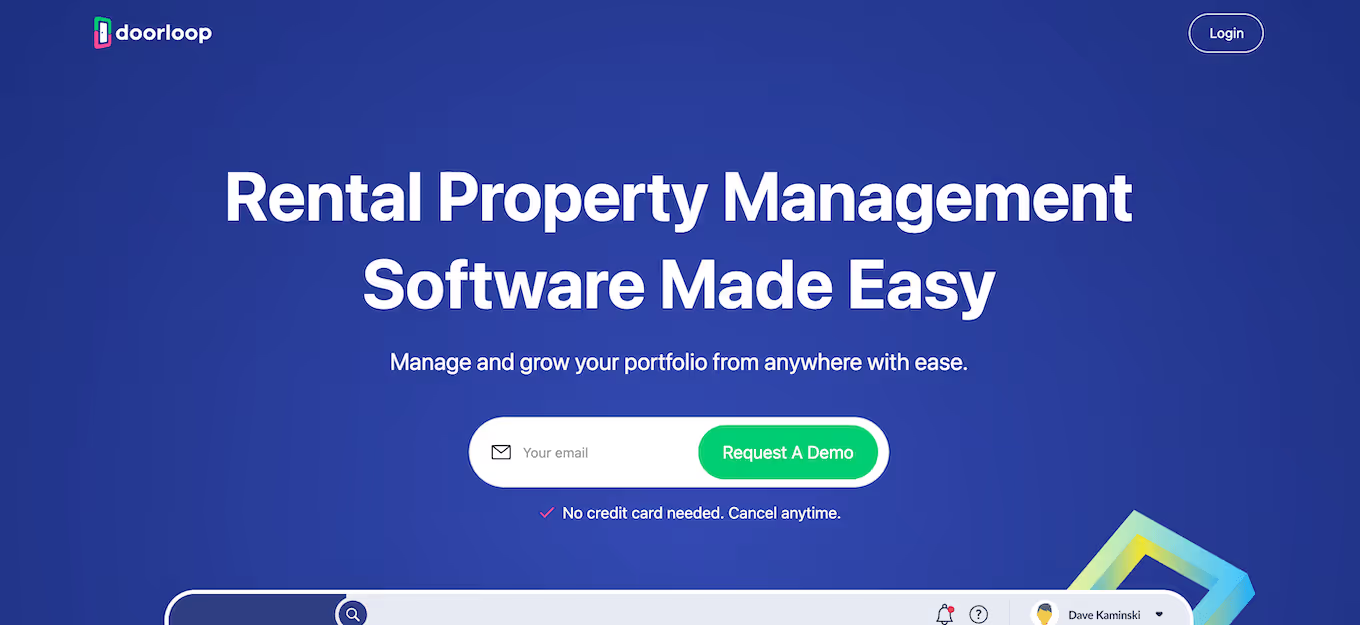
DoorLoop is an all-in-one solution that offers comprehensive property management features, from property accounting and bookkeeping to tenant screening, online rent payments, and even marketing tools.
To make your accounting fast, safe, and easy, DoorLoop has also partnered with Stripe, a global leader in online payment processing.
DoorLoop Features
- Accounting suite designed to replace QuickBooks
- Automatic bank account syncing
- Full chart of accounts
- Bill pay and tracking
- Tenant portal for online payments, communication, and maintenance requests
- Owner portal for running key reports and printing checks
- Detailed rental property income and expense reports
- Responsive customer service
- Open API for numerous integrations, including QuickBooks Online
DoorLoop Pricing
DoorLoop's affordable pricing starts at $69 a month for up to 20 properties. It's an accessible option for landlords, property managers, and other real estate professionals of any portfolio size and type. It has a demo for users to learn about the software for free.
DoorLoop also offers multiple pricing tiers based on your needs and will scale with you as your portfolio grows. It allows you to add unlimited users at no additional cost as well.
Hemlane
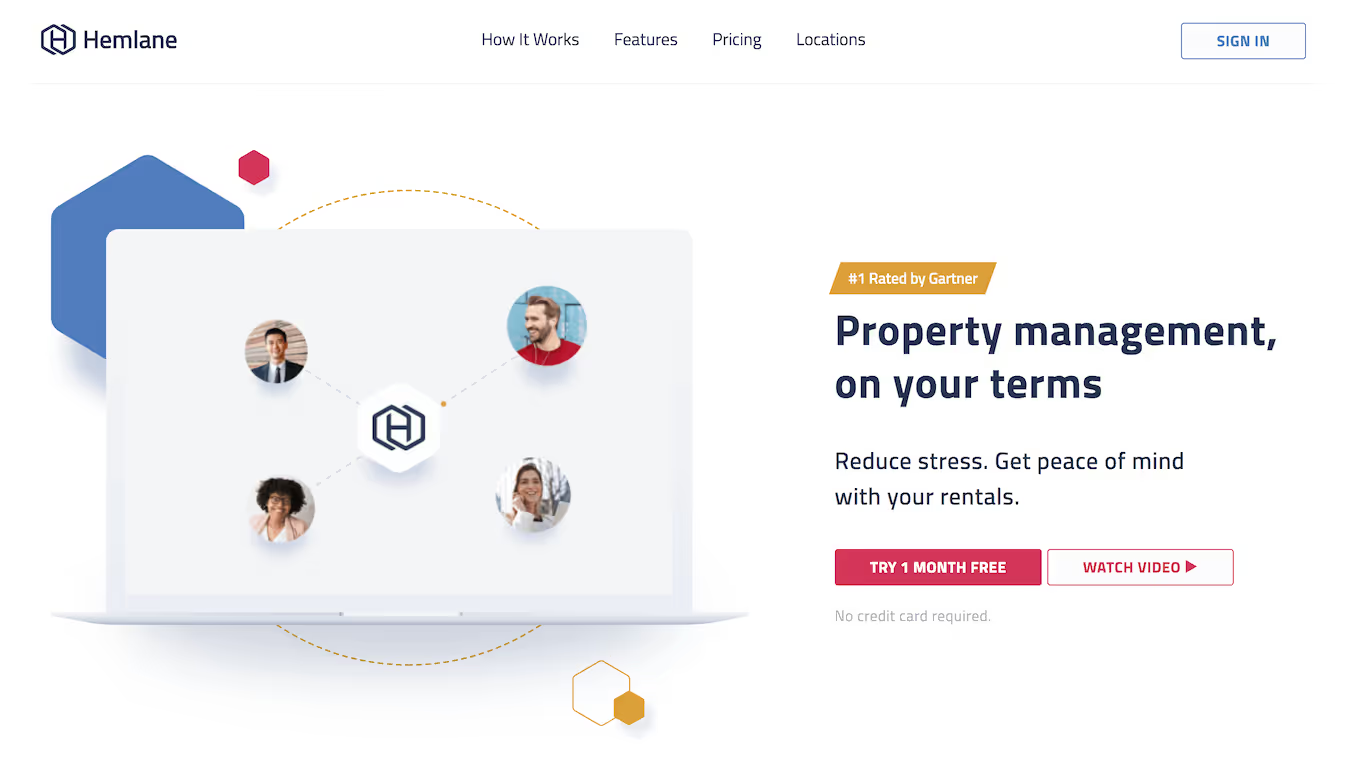
Hemlane is a comprehensive platform with built-in bookkeeping and leasing tools and property management features. It offers some unique services as well, such as matching with local agents.
However, due to its pricing, it's best suited for smaller-scale property managers.
Hemlane Features
- Real estate marketing and leasing tools
- Maintenance coordination to handle repairs and other requests
- Local support features
- Tenant screening
- Online payments for rent
Hemlane Pricing
Hemlane starts at $2 per unit per month with a $28 base fee for its basic plan. This includes marketing syndication, application and tenant screening, lease tracking and management, expense tracking, online rent payments, and maintenance requests and tracking.
If you want more repair coordination and some state-specific support, you can upgrade.
Xero
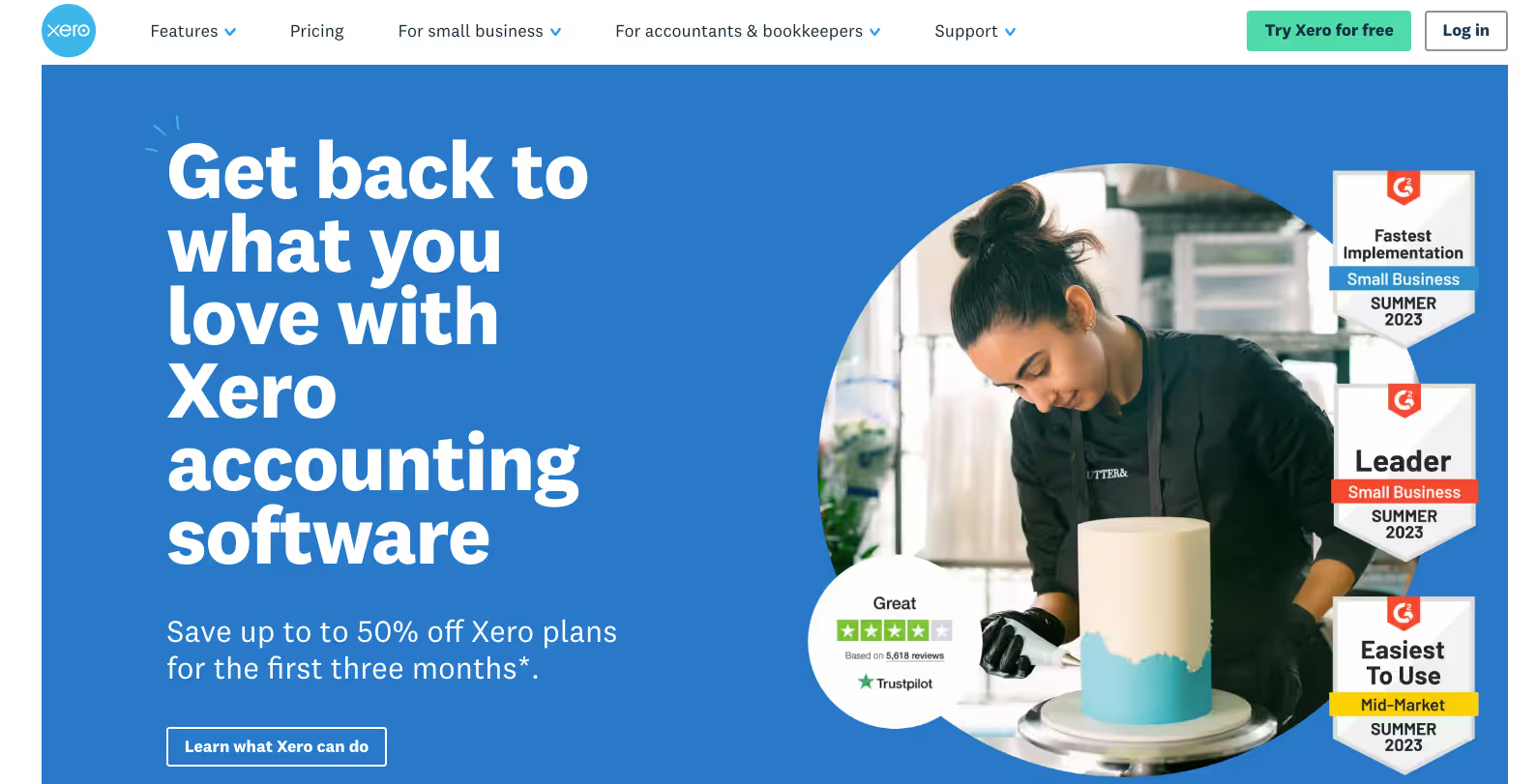
Xero is a cloud-based, user-friendly accounting software with a slick reporting interface and tools for your basic accounting needs.
Like QuickBooks, however, Xero is not designed specifically for property accounting and management. Therefore, it lacks some important property management features like tenant screening.
Xero Features
- Reporting
- Automated rent invoices
- Expense tracking
- Invoicing
Xero Pricing
Xero has multiple pricing plans depending on the size and goals of your business. It's "early" plan with basic features starts at $13 per month. It has other plans with additional features that start at $37 per month and $70 per month as well.
Sage

Sage accounting software is a scalable, cloud-based bookkeeping solution. Unlike Xero and QuickBooks, Sage accounting software does have some industry-specific features that make it suitable for landlords and property managers. It's also designed with large companies in mind.
Sage Features
- Customized reporting
- Cash flow management
- Invoicing
- Bill tracking
- Bank reconciliation
Sage Pricing
Sage is a rather expensive option. It has multiple pricing plans, but its Sage 50 Pro Accounting plan starts at $578 per month.
TenantCloud
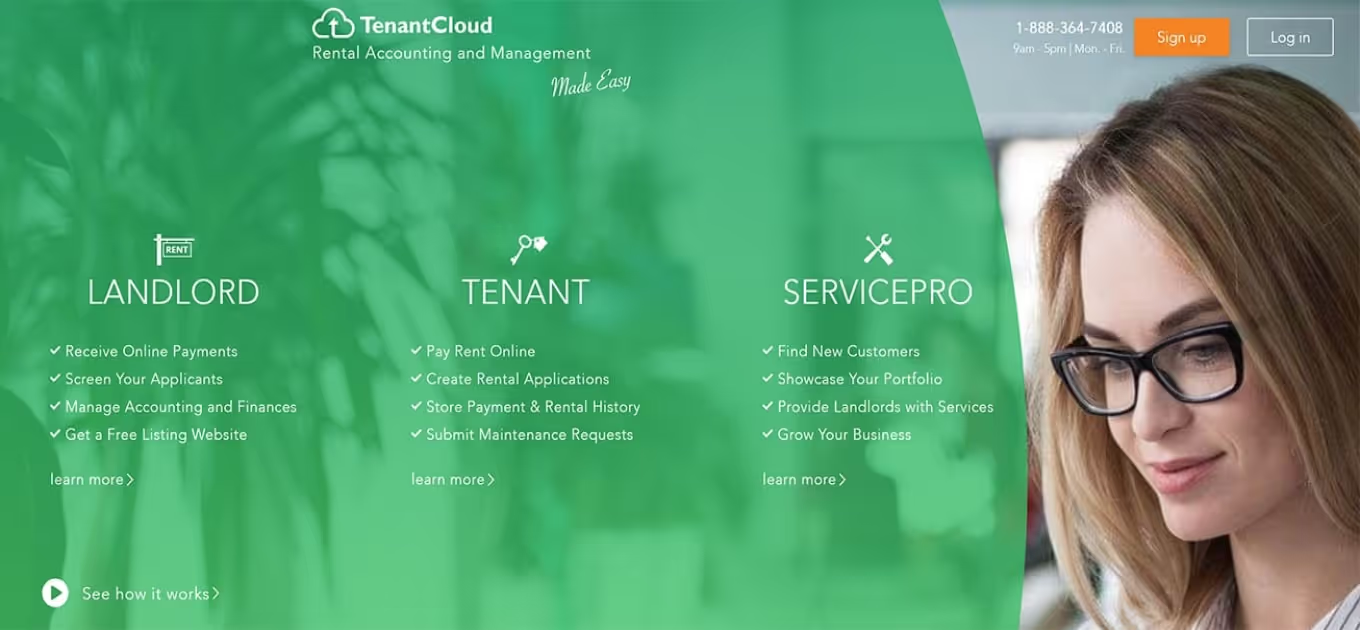
TenantCloud is an affordable, cloud-based option for landlords or property managers on a budget. This makes it a decent solution for those who only need basic bookkeeping and accounting features and do not need some of the more extensive services other dedicated tools provide.
TenantCloud Features
- Basic accounting features
- Reporting
- Online rent collection
- Maintenance request management
- Insurance reminders
- Vendor payments
TenantCloud Pricing
TenantCloud starts at $15 per month for its basic plan, including rent payments, maintenance, listings, rental applications, eSignature, tax reports, and leads tracking. You can upgrade your plan to get more features.
SimplifyEm
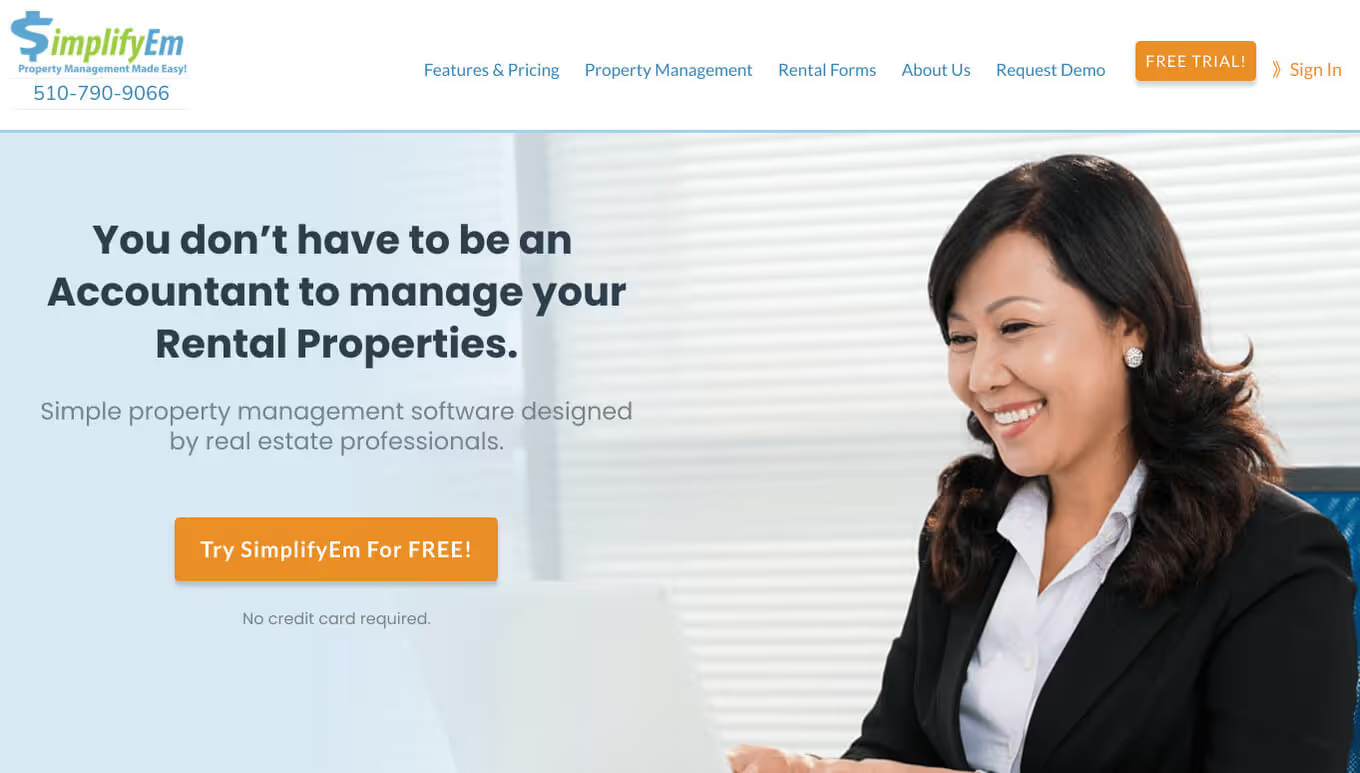
SimplifyEm is a user-friendly bookkeeping software designed specifically for rental property management.
With its easy setup and use, SimplifyEm can help property managers track income, expenses, and other financial aspects of their rental properties while focusing on growing their rental business.
Features
- Tenant portal
- QuickBooks Online integration
- Automated rent payments and reminders
- Dashboard payment reminders
- Lease agreement processing
- Document tracking
SimplifyEm Pricing
SimplifyEm has multiple pricing tiers based on the number of units you have. It starts at $35 per month to manage up to 10 units.
Which Bookkeeping Software Is Best for My Rental Business?
The best real estate accounting software solutions mentioned in this guide each offer unique features and benefits. Carefully evaluate them to determine which will best suit the needs of your rental business. Consider your specific needs, budget, and desired real estate-specific features.
Your choice should save you time and reduce errors in your company's reporting, giving you peace of mind that your bookkeeping is accurate and taken care of.
Considering the many facets of property management, we recommend all-in-one solutions like DoorLoop, which can take care of your bookkeeping, work order management, tenant screening, marketing, and so much more.
Schedule a free demo with DoorLoop today to see how it can transform the bookkeeping of your real estate business.





























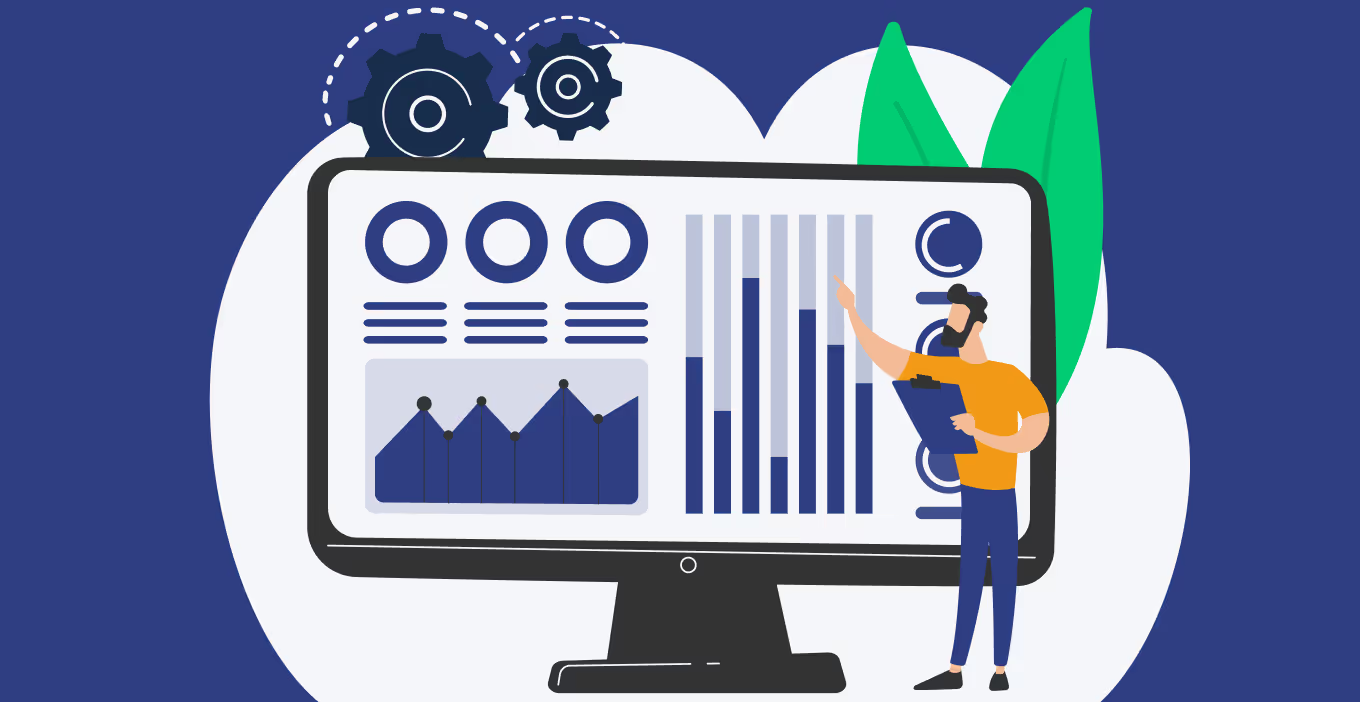


.svg)
.svg)

